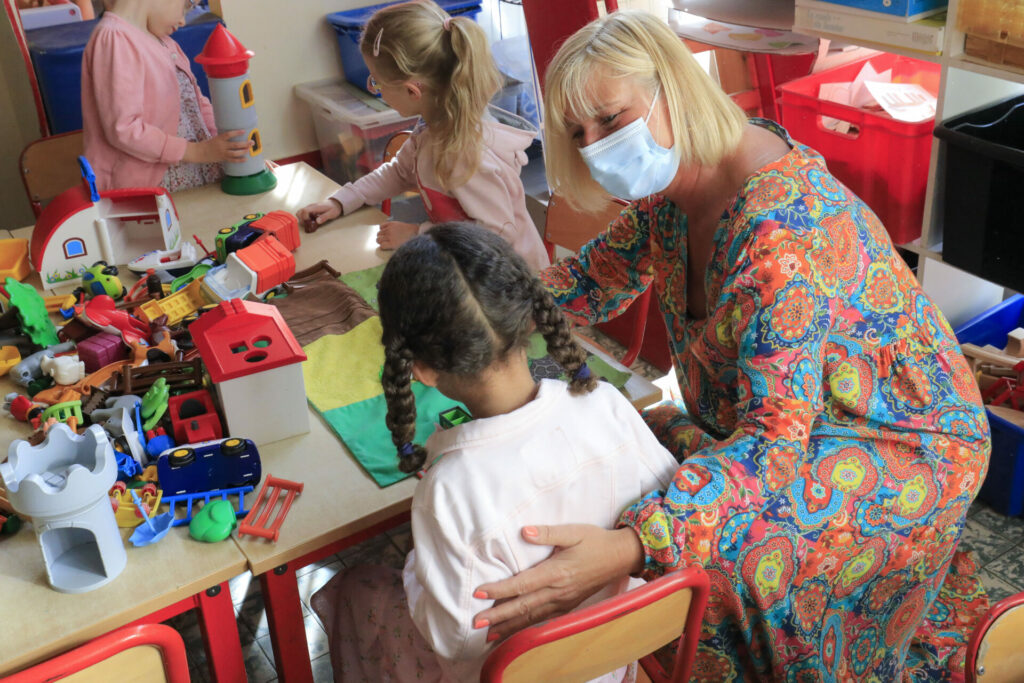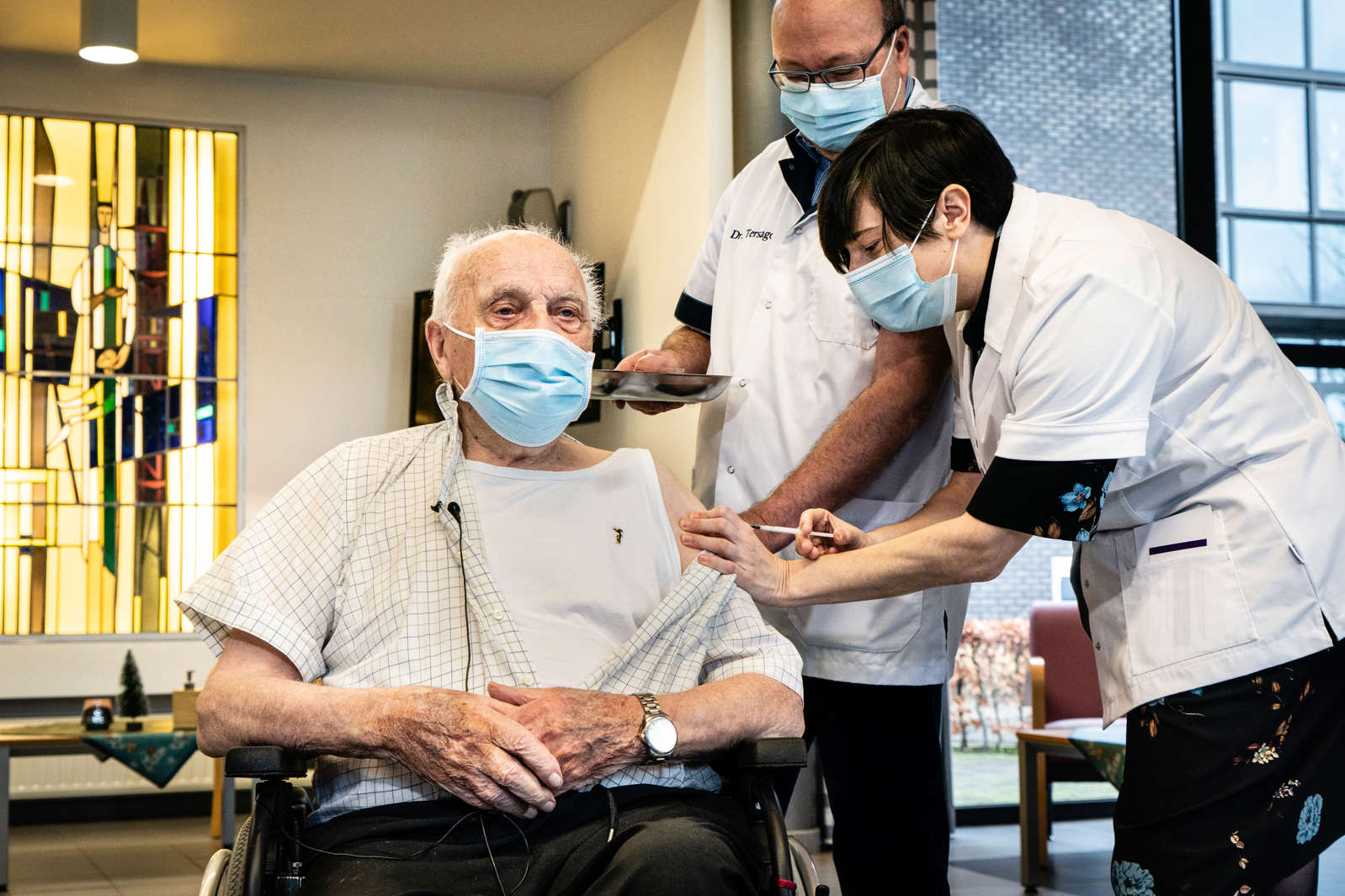As cases rise again in Belgium, the Organisation for Economic Cooperation and Development (OECD) has presented a report which assesses the country's overall Covid-19 policy – and found that it showed "economic and social resilience."
So what are the major takeaways?
Belgium was commended for rapidly putting in place economic support for households and businesses, as well as ensuring the continuity of education through digital-based learning. However, the country should draw lessons from the Covid-19 crisis to strengthen its preparedness for future crises, particularly concerning cooperation among different levels of government in times of crisis, the report shows.
"Covid-19 brought with it challenges for Belgium and countries all around the world that were unprecedented for decades," OECD Secretary-General Mathias Cormann said presenting the evaluation alongside Belgian Prime Minister Alexander De Croo.
1. All in all, Belgium did not do too badly
Belgium made severe mistakes during the Covid-19 crisis, especially in the first year of the pandemic, "but the country also did a lot of things right," Cormann said, talking about an "admirable" policy in exceptional circumstances.
As the report itself states: "Although Belgium did poorly in the first year of the pandemic, its healthcare system was able to respond quite robustly by taking measures throughout the pandemic." These included rapid increases in hospital beds, the well-oiled vaccination campaign and support for businesses.
"I am really glad that this review has been ordered from the OECD. We need to learn lessons from pandemic management. There is a constant tendency to move on to business as usual," said former Corona Commissioner Pedro Facon on social media. "Besides good points, the report contains a battery of recommendations. These must be transposed."
2. 2020 was 'disastrous'
The OECD's critiques are centred mainly on the first year of the Covid-19 crisis in 2020. Especially in residential care centres, the lack of structure caused a huge number of deaths among the elderly.
"The intensity of the first two Covid waves in Belgium led to a sharp increase in deaths in 2020 – the mortality rate was 11.8% higher than before the pandemic and was more than twice the average of OECD countries (5.8%). Belgium performed worse than all its neighbours."
However, Belgium recovered and in 2021, its excess mortality rate was 3.2% lower than before the pandemic. In 2022, it was 1.2%. Over the whole period, Belgium outperformed France, Germany and the Netherlands. Only Luxembourg had lower excess mortality between 2020 and 2022.

A resident tested for Covid-19 at a nursing home in April 2020. Credit: Belga/Benoit Doppagne
The OECD also noted that Belgium was insufficiently prepared for a health crisis of this magnitude: one of the major pain points was the shortage of protective equipment such as face masks. Especially in residential care homes, this took a high toll: nearly half of all Belgian Covid deaths were nursing home residents. In 2020, the figure was as high as 57%.
"In residential care centres, people died who would not have died if we had been better prepared. In the first phase, we also looked too much at the hospitals," said Facon. "The impact this had was disastrous. We should not minimise that."
3. Schools stayed open
How to organise education was a heavily debated topic during the pandemic, as supporters and opponents of strict measures in schools often clashed.
Again, the OECD underlined that the start was difficult: "As most countries, Belgium faced major challenges to ensure the continuity of education during the crisis. In the three language communities, when schools were initially closed, there was a widespread lack of preparation for distance learning."

Credit: Thierry Roge/Belga
However, the OECD gradually noticed improvement there as well and pointed to the joint effort of the various education ministers to keep schools open. That effort made Belgium "one of the OECD countries where schools were closed least often." In Germany, for example, schools ended up staying closed slightly longer.
In the absence of data, however, the OECD does not comment on the exact impact of Covid-19 policy on Belgian education quality. Still, the latest results of the Programme for International Student Assessment (PISA) show an unprecedented drop in performance across OECD countries, including Belgium.
4. Mental health suffered (and is still suffering)
As children were deprived of social contacts, parents had to combine working from home and caring for family, healthcare staff were overstretched and many elderly people were isolated, the pandemic placed a heavy psychological burden on society.
"In the 14 OECD countries for which data are available, the pandemic led to a significant increase in self-reported mental health problems. In some countries, the proportion of the population reporting symptoms of anxiety and depression doubled. This was also almost the case in Belgium in 2020."
Even now, young people remain a concern, stated the OECD. In many countries, their researchers noted a "disproportionate impact" of the Covid-19 crisis on the mental well-being of young people (aged 18 to 29). Belgium is no exception: they were the hardest hit.
5. Vaccines played a crucial role

96-year-old Jos Hermans received the first Covid-19 vaccine in Flanders on 28 December. Credit: Belga
For the OECD, the rapid vaccination campaign across Belgium is seen as the main reason why the country managed to recover in 2021 and 2022. The strategic vaccination campaign identified and targeted vulnerable groups, and led to 78% of the population being vaccinated in March 2022, compared with an OECD average of 73%.
On the introduction of the controversial Covid Safe Ticket (CST), however, the OECD has no clear opinion. "On the one hand, some people did report getting vaccinated in order to travel more easily and avoid multiple tests. So a positive effect is possible. But on the other hand, there were also concerns that the CST would lead to a sense of false security and increase social divisions."
Taking these factors into account, Facon said that any possible future use of the CST (or a similar instrument) deserves "thorough consideration" before a decision is made. "We have to recognise that there remains uncertainty about the effectiveness of the CST. And then you also saw the social backlash. Thorough consideration would be needed."

